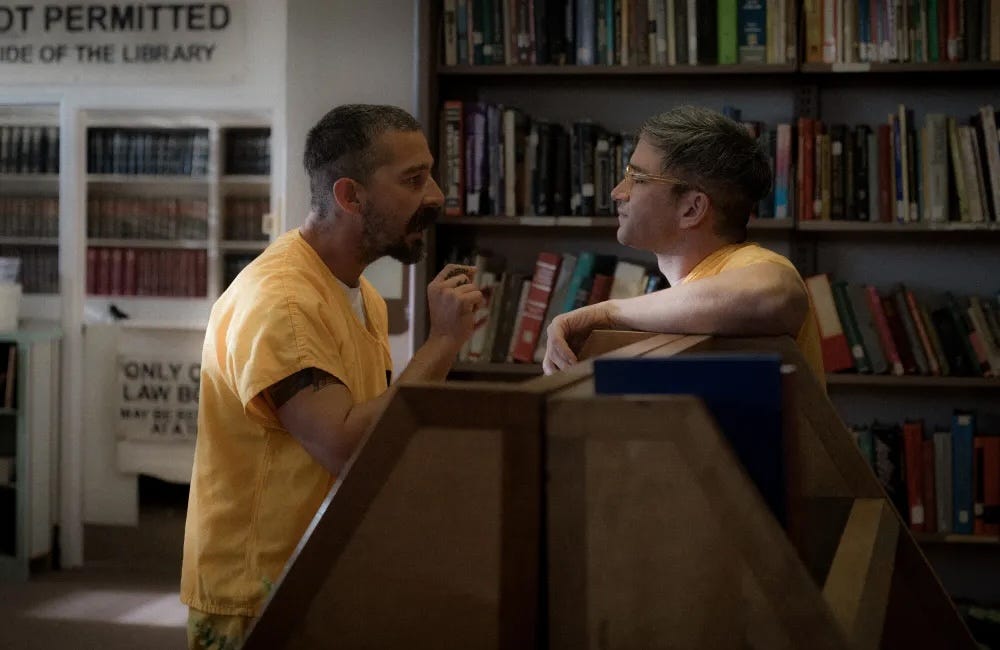
A Crypto Billionaire With a Side Hustle as POTUS
May 9, 2025
Jared Kushner Is Back—Just Before Trump’s Middle East Trip
May 9, 2025When news broke on Sunday that Donald Trump wanted to implement “100% Tariffs” on foreign-made movies, no one was entirely sure what he meant. I mean, about any of it. Did he mean foreign movies like The 400 Blows or American movies that are made overseas like the forthcoming Avengers: Doomsday? Did he mean a tariff on the budget, on foreign subsidies, what? There are no actual “imports” of goods, so how would you levy these tariffs: on ticket sales, by taxing studios, what? Wait, a tax—doesn’t that require Congress? (Hahaha, just kidding!)
Anyway, I wrote a bit about this in Morning Shots, debated the pros and cons with Alyssa on Across the Movie Aisle, and did a video with JVL and Andrew Egger about it on Monday. The next day, Deadline reported the details of the plan after obtaining a copy of the document that Jon Voight gave to Donald Trump in the hopes of making Hollywood great again. You should give it a read, but the long and the short of it is that Voight, as the emissary of Hollywood, is asking for (1) a federal film-production subsidy comparable to those that Canada and most European nations have implemented that would “stack” on top of generous state subsidies provided by American locations like Georgia and Louisiana; along with (2) tax relief for Hollywood; and (3) what amounts to a 120 percent tax on foreign subsidies to discourage American productions from leaving in the first place.
The thing that jumps out about the plan is that it involves training a veritable firehose of federal cash on movie studios worth billions of dollars (trillions, in the case of Apple and Amazon) with a special emphasis on a state, California, that likes to brag about being the fourth-largest economy in the world and is, well, deep blue. My point, simply, is that no Republican in Congress is going to be caught dead participating in a massive handout to the godless libs of LaLa land.
However. Imagine the following scenario.
The Republican party gets blown out in the midterms, as the party in power in the White House typically is. Economy’s in the tank, people aren’t happy, Democrats run up big majorities in the House and the Senate.
Donald Trump, having no real policy convictions and a deep thirst to be feted, is approached by California Democrats like Gavin Newsom and Adam Schiff about instituting portions of the Voight plan. No, no, we can’t kill those foreign subsidies—this will be the hardest part, convincing Trump that he can’t just mash the tariff button on what is very clearly a tax, but I’m sure Hollywood’s storytellers can spin a tale to his liking—though we can compete with them. We need to hand out money to the good hardworking filmmakers in California. Hell, some of those IATSE members probably even voted for you! And let’s get you some photo ops. You want a picture shaking hands with all these people who said they’d never support you? We can do that. Ben Affleck and Matt Damon run a whole studio now, I’m sure they’d love some of that federal money. You want them to bend the knee, right? That’ll be … nice.
And the funniest part of all this is that the MAGA faithful will happily go along with it because it’ll make Trump happy. The switch will flip from “Trump must kill government waste” to “Look at Trump’s art of the deal.” He’s saving jobs! He’s Making American Movies Great Again!
On Across the Movie Aisle’s bonus episode this week, we talked about the ugly inhumanity of AI actors and why no one who champions the technology seems to understand how actual humans process emotional vulnerability.
I talked to Evan Jonigkeit—the producer and star of David Mamet’s first movie in twelve years, Henry Johnson—this week for The Bulwark Goes to Hollywood. I hope you give it a listen because it’s very much what the show is at its best—offering insights into both the art and the business of filmmaking.
Bulwark Goes to Hollywood
How David Mamet Made His First Film in 12 Years

On this week’s episode, I’m joined by Evan Jonigkeit, the star and producer of Henry Johnson. Based on the play of the same name by David Mamet, Henry Johnson is Mamet’s first film in a dozen years and a beguiling provocation; I greatly enjoyed discussing not only the meaning of the movie with Jonigkeit but also how difficult it is to get…
I typically do not review books and movies when I’ve already interviewed people involved with the making of the film; it creates the potential for conflicts of interest. So what follows isn’t a review. But I would very much like to recommend you watch Henry Johnson—which is available to rent via the film’s website, HenryJohnsonMovie.com, and also screening at the Aero tonight (Friday, May 9) in Los Angeles and from May 9–13 at the Bryn Mawr Institute in Pennsylvania.
I don’t want to spoil the movie so I will not reveal the plot; indeed, the great joy of this film, which is based on a play written by Mamet, is watching the story unfold as Henry Johnson (Jonigkeit) tries to navigate his way through certain moral and legal difficulties. The cast is outstanding: Jonigkeit plays a marvelous cipher, a man whose moral center is unformed save by the notion that he is doing the “right” thing because he’s being a “decent” person; Chris Bauer, whom audiences will remember from Season Two of The Wire and HBO’s True Blood, is magnificently penetrating as Johnson’s first interlocuter; Shia LaBeouf is probably the biggest name in the cast and does intense work as a voice of temptation; while Dominic Hoffman does some tremendous eye-acting in the final act.
Really, though, I think it’s a tremendously important movie about our moment, about the ways in which a lack of moral code—a refusal to adhere to principles beyond those demanded by charismatic individuals or some vague notion of what the masses demand—leads to personal and professional ruination. Mamet’s screenplay is provocative, as one might expect from the author of Oleanna; there is a riff on abortion in the opening moments that is likely to rub some people the wrong way.
But the movie is structured like a Socratic dialogue and with every provocation comes a deeper purpose. Henry Johnson is elliptical and looping in its argument and structure; as Jonigkeit and I discuss on the podcast, it’s a movie that rewards second viewings, once the main character’s plight is better understood. Luckily, a seven-day rental is more than enough time to watch it twice.
Great Job Sonny Bunch & the Team @ The Bulwark Source link for sharing this story.







